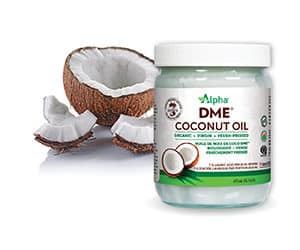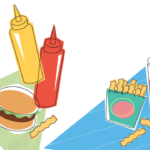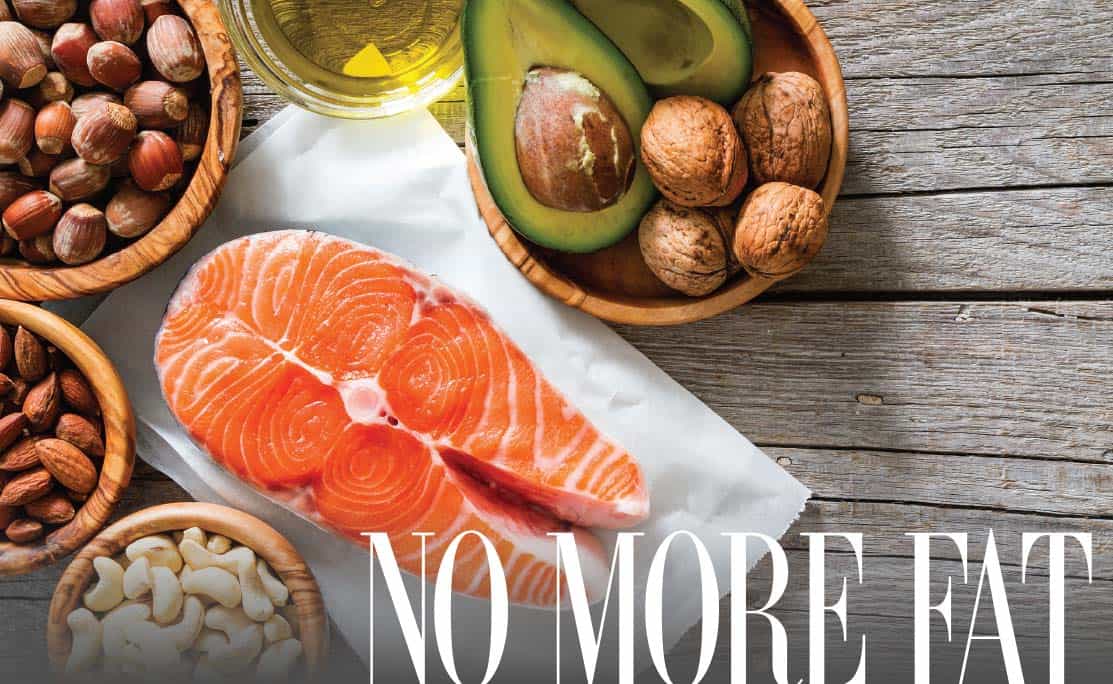

Remember the 1990s, when super-low-fat diets were all the rage?
People avoided cheese like the plague. Even avocados got a bad rap!
And on store shelves everywhere, low-fat versions of processed foods were elbowing out the full-fat offerings.
Well, it turns out that it was just another in a long series of fad diets, another pendulum swing in eating habits based on very misguided information.
They told us that all fat – all four kinds found in a typical diet – was bad:
- Saturated fats, from animal fat and tropical oils, such as coconut oil
- Monounsaturated fat, such as olive oil
- Polyunsaturated fat, such as omega-3 and omega-6
- Trans fats, as is found in margarine or Crisco

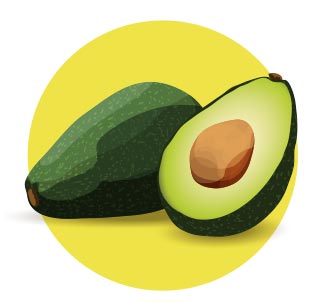
And the supposed solution for those who wanted to open a box and snack on something fat-free or low-fat was to eat less fat, sure, but a lot more sugar! Processed food companies that felt forced to remove the pleasant “mouth feel” of fat-laden ingredients gravitated to something at least as seductive: sugar! Some data suggests that North Americans ballooned in size and developed a tendency toward diabetes, courtesy primarily of this fear of fat… and the simplistic ways that Big Food responded to it.
Let’s get educated. All fat is not bad fat. And some of the fats we were absolutely convinced were harmful are actually just fine in a balanced diet, so long as they are consumed in moderation.
Saturated fats –
good or bad?
Let’s start by looking at the fat that was supposedly Public Enemy #1 – saturated fat. The rap on saturated fats, which come mostly from meats, is that they’re not just bad for your waistline, they’re ruinous for your heart and its arteries. But, travel the world, and you’ll find societies that have low rates of obesity and heart disease – and it just so happens they consume a tremendous amount of saturated fat! This includes indigenous tribes, and also some developed regions where cattle-raising is deeply established in the culture, such as Brazil, Argentina, and South Africa. In Alaska, meanwhile, the Inuits eat mostly whale meat and blubber, providing them a diet that consists of a whopping 75% saturated fat! Even where meat isn’t a diet staple, saturated fat seems to play a role in a healthy diet. Take the Tokealu in New Zealand, who eat a diet that is upwards of 60% fat, with almost all of it coming from the coconut they consume as part of their fish-heavy meals.
Of course, it may be of note that these other societies consume just a fraction of the sugar we do, which might be the real culprit when fat gets the blame.
After studying places like these, where saturated fat consumption is both normal
and healthy, scientists began noticing that many of these societies consume a tiny fraction of the sugar we do, which could mean that sugar is the real culprit when fat gets the blame. Nutritional experts began revising their dietary recommendations in accordance with the new information. Indeed, today’s research establishes that a healthy diet contains 16 – 18 g of saturated fat per day – more fat than what the studies recommended back in the nineties. More importantly, the majority of the more recent studies confirm that there really never was such a thing as a “bad fat” – at least, not a naturally occurring one. We’ll look at the biggest of the exceptions now.
Trans Fats
Are Unhealthy Fats
Trans fats are the product of food science. Also known as partially hydrogenated fats, trans fats are formed when liquid vegetable oils are processed into solid fats such as shortening and hard margarine. They hit us with a double whammy: in addition to raising levels of LDL “bad” cholesterol, they also decrease HDL “good” cholesterol. Many researchers suspect that trans fats play a role in heart health, as well as uncontrolled blood sugar, certain bowel disorders, and breast disease.
Want to avoid
unhealthy fat?
Eliminate or significantly curtail your intake of trans fats. How much is currently considered a safe amount to consume in a day? Absolutely none. Unfortunately, unless you’re staying away from almost all processed foods, trans fats are hard to avoid.
They’re in:
✗ French fries
✗ Doughnuts
✗ Pastries
✗ Muffins
✗ Croissants
✗ Cookies
✗ Crackers
✗ Chips
✗ Hard margarines
✗ Shortening
✗ Chicken nuggets


The best advice any doctor can give is to replace these unhealthy trans-fat-containing foods, as much as possible, with fresher, simpler foods that don’t have long lists of ingredients on their packaging… or don’t have packaging at all!

Healthy Fats for a Healthier Lifestyle
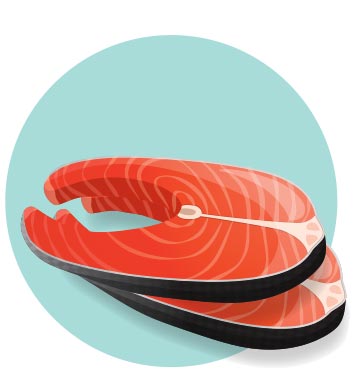
To gain all the energy-producing value of fat, without the unhealthy results that come with getting too much of a good thing, try to maintain the 16 –18 g per-day rule when it comes to saturated fats, eliminate or severely reduce trans fats, and focus in on the monounsaturated fats like those found in olive oil or avocados. The latter category has been linked to reductions in levels of harmful LDL cholesterol. (Just remember not to heat your olive oil, as it causes chemical changes that create inflammation and cancer-related free radicals.)
Also, try to eat more polyunsaturated fats like omega-3 fatty acids. These essential fatty acids, which are vital for health, cannot be produced by the body. Every one of our bodies’ 100 trillion living cells needs essential fatty acids to rebuild and produce new cells, and it’s our job to help them get it! Healthy omega-3 oils can be found in fatty fish such as salmon, tuna, mackerel, sardines, anchovies, plus walnuts and freshly ground flaxseeds. Omega-3s reduce inflammation, for which your body will thank you!

What about omega-6 oils? Unfortunately, in today’s world we consume far too many omega-6s, and they are a major cause of increased inflammation levels in our bodies. The primary reason for the epidemic imbalance in favour of omega-6? Our excessive consumption of the wrong oils – corn, sunflower, peanut, soy, canola, and safflower. Choose differently for better results, selecting the “right” oils for keeping inflammation at bay:
- Olive oil (unheated)
- Avocado
- Cold water fatty fish like salmon
- Walnuts
- Flaxseeds

Did you know,
that your brain
is 60% fat?
%
Some 25 years have passed since the low-fat fad was at its height. Both scientists and consumers have learned a lot since then. We now know that a cookie containing trans fats won’t kill us, and that eating a few French fries fried in omega-6 oils won’t condemn us to poor health and disease. Fat is food, first and foremost, and while it isn’t ideal in a few of its forms, we now know it powers us in ways our 1990s selves couldn’t have known or understood.
Did you know, for example, that your brain is 60% fat? And that it runs best on a diet that includes moderate amounts of healthy fat? It’s true! And if that fact doesn’t put a new slant on your cravings for a juicy steak, on occasion, or a scoop of ice cream… well, it should!
Educate yourself to eat well…
while eating right!








